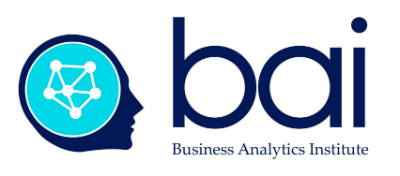Digital leadership isn’t about
mastering the Internet…
The IMD and EISE are among the latest Exec Education programs to promote the importance of leadership in the Digital Age. This makes sense, for as Umair Haque pointed out recently, leaders mastering the digital landscape are few and far between. What is less apparent is if and how information technology has transformed leadership. Do the traditional qualities of a leader - intelligence, trustworthiness, humaneness, courage, and discipline - suffice or do digital technologies require new skills and knowledge to lead organizations effectively?
Beyond the constant hype surrounding Big Data, information isn’t worth any more than our ability to use data to take better decisions. In an increasingly data-centric society, the omnipresence of real-time information on our motivations and objectives and can potentially revolutionize both our organizational models and practices. None-the-less transforming this potential into reality will depend on helping leadership understand how quantitative and qualitative data can improve strategic decision-making. What kinds of information reduce the risks associated with creativity and innovation in increasingly complex environments? The key isn’t processing larger and larger amounts of data, but understanding how better information on our ourselves and our environments can lead to more effective leadership.
The increasing digitalization of our very existence has produced a plethora of data to help leadership focus on understanding and influencing behaviors and actions. This promising boon is often qualified as a potential bust for organizational decision-making – Yogesh Malik, for example, writes of the successive dangers of information, digital and now algorithm overload. This observation defines the specificity of business analytics : asking the right questions, understanding the context in which the data has been collected, and using the data to tell organizational stories that will incite an audience to act.
Mike Clark argues that leaders don’t have to be techies, but they do have to understand how to make connections in a digital world. To paraphrase Isaiah Berlin, great leaders have “instinctive skills”; the power to make “inspired guesses” concerning choices on how to influence others and bring about their vision. David Snowdon has argued that these hunches are closely tied to the ability to recognize non-linear relationships in the environment – i.e. leaders see problems in a different light than their colleagues. Training the mind to understand how we filter “imperfect” information, as well as the confidence we can have in inspired guesses is a fundamental theme of business analytics. Douglas Hubbard argues that this skill requires more than just natural talent - we can improve strategic decision-making with practice and foresight.
Harold Jarche refers to the importance of sense-making in digital societies – our social relations offer us both the ability to both contextualize and connect in increasingly volatile environments. Today leaders need to inspire changes in organizational culture and processes to harness their intangible assets. Digital Democracy changes the content and the nature of marketing ideas, people and policies. Digital Transformation accelerates the development of the networked economy as organizations subcontract activities and processes to business partners. Digital Wealth can become a core asset as companies strive to monetize their investments in data and technology. If measurement is designed to reduce uncertainty associated with taking the right decisions, data can become an adhesive that cements organizations together.
Leadership is more important than ever in the Digital Age. The traditional skills associated with leadership haven’t changed, but the vision of how leaders look at their assets, organizations, and markets has. Data both qualifies and taints how we look at ideas, products, and policies. Digital leadership isn’t about mastering the Internet, it's about helping organizations ask pertinent questions, learn to filter imperfect information, improve their decision-making, and telling stories with data that make sense.
The topic of digital leadership is at the heart of our Executive Education offer on community management. For a broader view of this vision can be found in our previous post, What do we need to know about people to manage communities?
Lee SCHLENKER
August 24, 2016
Clark, M., Digital Leadership.
Jarche, H., Sensemaking with Social Media.
Haque, U., Your Digital Strategy Shouldn’t Be About Attention.
Hubbard, Douglas W and Dave Drummond. How To Measure Anything. [Old Saybrook, Ct.]: Tantor Media, Inc., 2011.
Malik, Y., A Journey From Information Overload to Digital Overload to Algorithm Overload.
Social Provocations, Leadership In A Digital Age: Moving Beyond Rhetoric.


